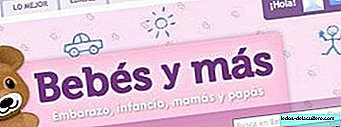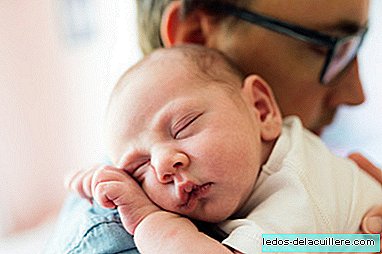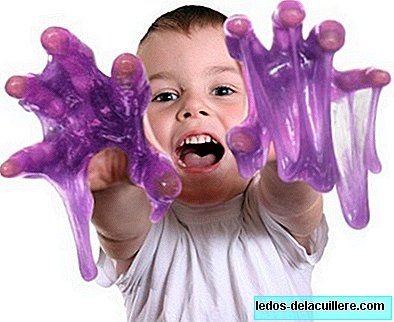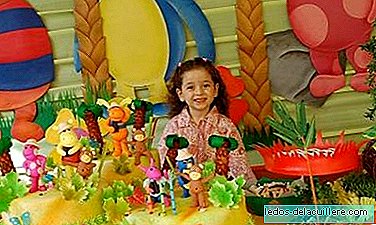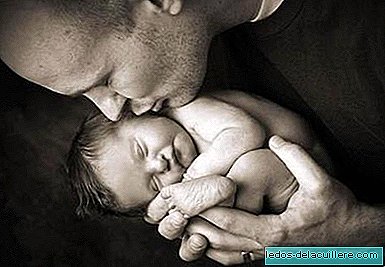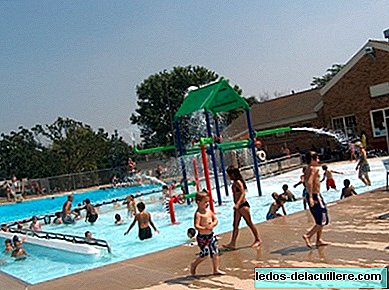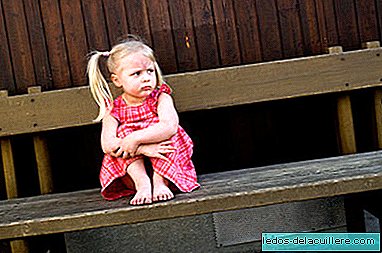
He punishment It has been part of education for a long time. On television, for example, it is so normalized that it is usual to see the protagonists of the youth television series remain unable to go out for weeks to do this or that action.
The vast majority of adults today have suffered them, often for things we had done unintentionally, often for things we had not even done and often for behaviors that could be considered inappropriate.
The reasons for the punishments are so different that many times they live as unfair and, if we stop a little to think about it, we can say that the punishments are uneducated and that can cause negative consequences.
What is a punishment
The punishment could be defined as that action performed by a person who causes dislike or dislike in another and whose purpose is to eliminate or correct an annoying or inappropriate behavior or behavior.
The most frequent are:
- Time out: prohibit the child from staying in the place or context where he has exhibited a behavior considered annoying or inappropriate (send him to sleep, to his room, to the thinking chair, ...).
- Withdrawal of positive boosters or stimuli: prohibit things the child likes (watch TV, go to the park, go out and play with friends, etc.)
- The physical punishment: which, as we have often spoken, has nothing educational.
The punishment is apparently effective
It is possible that the cause for which punishment remains as an educational tool is its apparent efficacy and immediacy to control or stop inappropriate behavior or perhaps it simply remains in force because we were educated in this way and by natural logic we tend to act as they acted with us.

In any case punishing a child is not the best way to educate him. Through punishment, although the behavior is extinguished in a timely manner, the root of the problem is not solved and many children who, despite having been punished for a behavior, continue to do so when they can or when they believe they are not seen.
In other words, the effects of punishment are momentary. The punishment does not cause unlearning of the behavior that you want to modify or offers a more appropriate alternative and this makes the behavior tend to repeat itself.
Side effects of punishment
Using punishments as a usual measure of correction causes the child's loss of confidence towards the parents or educators, damages the child's self-esteem, which becomes devalued (especially if you think it does not deserve punishment), stress, tension and aggressiveness occur and even causes the use of lies or deception to avoid punishment.
Many children end up distancing themselves from their parents and “punishing” them by denying them communication and generating anger and need for revenge (not always conscious).
Many others end up losing spontaneity and creativity (childhood?) And become insecure, fearful and dependent children of the person who punishes him, because they avoid making decisions that may be wrong and that may lead to a new punishment.
The importance of day to day
“Begin discipline at an early age. Clarify the rules very well and reinforce them immediately and with consistency. Reinforce obedience with caresses and phrases such as: Very good! How well you have done it! And after disciplining him, tell him that you love him and that you do it for his own good. ”
These tips, which many people would applaud, share and see necessary to raise and educate children, do not come from an education book for children, but from a Manual to train Doberman Pinscher (probably outdated, because even the advice to educate Dogs are currently being passed to avoid punishment.
By this I mean that We have been educating children for many years as if they were dogs, that is to say, seeking blind obedience, "who knows who is in charge", "this is my house and here I command" and "who sees that life is hard".
The difference is that the nature of dogs is to be helpful and obedient, but that of children is to be free.
The different styles of education
In authoritarian education, that which is said now that we should recover parents, children have no right.
In permissive education, that in which parents let their children literally do “whatever they want” (which would not even receive the name of education, because they are not being educated), the child has all the rights.
In a more democratic education, where communication and mutual respect reign, parents and children share rights.
The punishment would become part of the so-called authoritarian education and the goal should be to educate a child to live in freedom, but without restricting the freedom of those around him ("live and let live").
Educating requires patience and the work of parents or educators should be directed, whenever possible, to show alternatives and elements that invite reflection, not only on behavior considered inappropriate, but also about the consequences it causes on others.
The purpose, in my view, is that children are responsible, self-critical and autonomous people but with their own values, that is, being their authentic way of life, originated in themselves and not in obedience to a superior being ( parents).
As Piaget said, “Autonomy only appears with reciprocity, when mutual respect is strong enough to make the individual feel from within the desire to treat others as he would like to be treated”. Therefore, the fight must be aimed at creating that autonomy in children.
To achieve this, the path of dialogue and communication is necessary, the continuous example of the parents in the day to day and the appropriate demand, always with love.
Punishment is "the fast way" to tackle a problem and its effect on behavior is temporary. It hardly manages to eradicate negative behavior in a lasting way and tends to distance parents and children and humiliate the latter.
And then you can't punish?

Many people defend punishment because they believe that there really are attitudes that cannot be tolerated and, if repeated insolently, punishment is the only way to make people understand what is important.
In a way they are right, but only in a timely manner. Bad actions, and especially if they are committed by children, are usually motivated by a more chronic or lasting problem (they feel undervalued, they need more affection, more time with their loved ones, they get bored, ...).
Mischief is only the tip of the iceberg and the punishment, as we have said, only acts on the most superficial part.
There are situations in which it is understood that it is necessary to stop a bad action and there are places, such as school, where there are many children for a teacher. In this case, momentary punishment would be acceptable as a “rescue measure” and never as an educational element to subsequently seek the root of the problem (although done in this way I believe that we cannot call it punishment, but seek to stop an action).
Many will think that saying that they shouldn't punish at school is to allow children to do what they want. Nothing is further from reality. What I try to show or explain is that children have to be educated (especially at home) so that they themselves are responsible for their actions and autonomous people who respect themselves and respect others.
Things fall by their own weight and the children themselves, when there is dialogue and communication, they just see that their actions have consequences (good or bad), they realize that life really is not a path of roses and they see that there are moments when they could have paid attention to dad or mom (and times when it would have been better to ignore them).
Some examples

- If a child paints the wall with his pens we can make him understand that he should not have done it with a “now the wall is dirty because you have painted it with the marker, it will have to be cleaned, if you want I can help you”. The fact of clean already exercises the educational function, because the child sees that his act has a consequence (dirty wall) that must be repaired (cleaning it).
By this I do not mean to let it be broken deliberately. We can stop the action with a “if when you get angry you treat the toys like that I will have to keep them so they don't break” if we consider it appropriate.
This phrase that seems like a punishment or a threat is really an invitation to reflection for the child to create his own rule. If you throw away the toys they will be removed so that they do not break, however, if you treat them well, you can play with them as much as you want. He decides at all times when he can begin to treat them well and understands that his own belongings must also be respected and that there may be other ways to channel anger.
The intention, after all, is to try to make children happy, that parents are happy and that the relationship between parents and children is the best possible. That is why we must try to use methods that do not humiliate, distance or are unfair to children (not even for parents) and to punish them I fear that it is not one of them.


